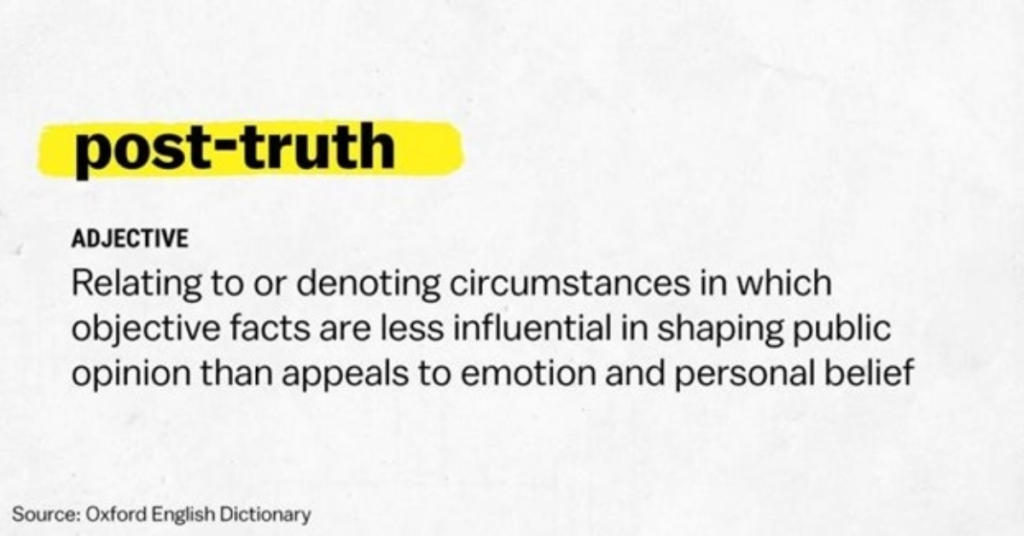The Rage of Populism
Populism is all (the) rage: The rise of the Populist International and its Scottish Potential
We might be tempted to dismiss populism as the knee-jerk reaction of those who have been ‘left behind’ by economic and social forces broadly labelled ‘globalisation’, Hillary Clinton’s basket of deplorables. We would be unwise to do so.
Consider the standing of ‘populist’ parties in opinion polls in 2025 across Europe. The eastern and central European examples – Hungary, Poland, Slovakia – are reflections of the failure of autonomous civil society to develop under state communism, but that is only half the story. In the west, there is Trump, obviously, the head of Reactionary International, to whom populists bend the knee, but we don’t look too far from home to see examples. In the recent Hamilton, Larkhall and Stonehouse by-election, Reform got 26% of the vote. This is Scotland: Populism isn’t meant to happen here. At UK level Reform is currently ahead of Labour, and way ahead of the Tories.
Elsewhere, the Populist Right are a force to be reckoned with. In Austria, France, Italy, Germany, Switzerland, Flanders, and even in the erstwhile Social Democratic bolt-holes, Sweden, Norway and Denmark. Researchers at Essex University have found that in terms of belonging to the authoritarian populist tribe, the highest proportions are found in France (65%), Italy (61%), Finland (50%), Denmark (49%), and UK (48%). Looking back to 1945, they concluded: ‘an authoritarian mindset has always been relatively widespread among the citizenry of the West. Its characteristic features are a suspicion of minorities, especially ethnic and religious minorities; distrust of political, financial and cultural elites, including mainstream politicians of the stablished parties; a disposition to believe in conspiracies; a faith in simple solutions to stubborn and complicated problems, notably involving the breach of individual rights and due process’.


Authoritarian populism of the right flourishes by mobilising hostility to immigration and replacing the politics of class by the politics of ethnic and national identity. The data show the strength of populist opinion across various states, and in western Europe ranging from around one-third to one-fifth.
All this begs a key question: what is Populism anyway? If we bundle everything we don’t like into the category of Populism, what are we left with? Let us start with a few definitions. One of the most astute commentators on Populism is the German-born Jan-Werner Müller who teaches in the USA. Müller’s definition is useful on two counts: the juxtaposition of ‘people’ and ‘elites’; and the ‘moral’ component of populism.
Populism goes back a bit, as far as ancient Rome where the social divide was between two key groups, ‘populares’ and ‘optimates’. The political practice of the Roman republic left a complex legacy and political elasticity relating to ‘the people’; that the term’s vagueness was its feature and its utility. Thus, the Populus Dei of the early Christian Church, transmogrified into ‘God’s People’ for Protestant reformers, and claims by a diversity of national groups (including the English as well as the Scots) that they were truly the people of God.
From there it was a short intellectual journey to ‘we, the people’ of the American Revolution, that ‘popular government’ was the antithesis of implicit aristocratic (and British) government. The American Revolution launched the career of “the people” as a universalist and progressive cause. This embedding of populism deep into American culture and politics has been reflected in the rise of Trumpery.
At the core of populism is a configuration which juxtaposes ‘the people’ versus ‘the elite’, but what constitutes each is problematic. ‘The people’ can mean the common or ‘ordinary’ people (‘the plebs’ in a Roman sense), a culturally or ethnically distinct people (ethnos), or a people defined as sovereign (demos). Populists are anti-elitists, and in essence, anti-pluralists, for it is a fantasy that there is a single, homogeneous, authentic people. This people, assumed to be a homogeneous whole, can be authentically represented only by populists. The populus is a mystical body (corpus mysticum) given voice by the vox populi.
At the heart of populism is a juxtaposition of ‘the pure people’ versus ‘the corrupt elite’. Social and political analysis requires us to parse each of them such so as to cast doubt on a single, homogeneous ‘people’, still less a coherent, undifferentiated ‘elite’. In any case, the latter concept is an accusatory one, a kampfbegriffe, literally a ‘fighting word’, not generated by the elite itself. When, for example, Michael Gove, the-then Conservative government, and The Daily Mail (4 November 2016) at the time of Brexit called judges ‘enemies of the people’, this was an accusation, not a considered self-definition by The Bench.


While populism claims to speak on behalf of ‘the people’, who precisely they are is never clear. That is not its weakness, but its strength, as a discursive tool to cow the opposition. There is a tendency of non-populists to dismiss populism as a ragbag of inconsistent ideas and policies; hence, the ‘basket of deplorables’. It would be foolish to dismiss populism, and not only because its leading proponent is currently US President. It has, behind it, a powerful set of ideas in the form of the writings of Carl Schmitt (1888-1985), a right-wing legal theorist in the inter-war period who supported Hitler and Fascism. For Schmitt, ‘the once mystical body of the sovereign king is transposed into the nearly sovereign body of the people’. We can grasp the appeal of the charismatic ‘strong man (or woman)’ and of the attachment to plebiscitarian ‘democracy’ by populism. Populists view ‘the people’ as passive; to be shown the way by an all-powerful leader. Remind you of anyone?
We are the people; I am your voice
It is doubtful whether populism would have had such a run for its money without Trump as the leader of what French president Emmanuel Macron called l’internationale réactionnaire. The foundations of that populism are well-known: we, the people, written into the US Constitution. By the 1890s, there was a People’s Party, popular among small farmers, and fueled by the moral revivalism. The rest of the story is familiar: zealous anti-Communism, McCarthyism, George Wallace, the rise of the Christian Right, and the campaigns of Richard Nixon (and the ‘silent majority’) and Ronald Reagan. And almost uniquely, there is the notion of ‘unAmerican’ activities. As one observer noted, Populism is everywhere in American politics, but nowhere in particular.


It is a moot point as to whether populism would have had such an impact globally without Trump’s lead. There are, however, underlying social, economic and political conditions which have operated to render it popular elsewhere. A number of social and political crises have provided the perfect storm for populism to emerge: the financial crash and the so-called Great Recession from 2008; the ensuing sovereign debt crisis, and ‘austerity’; rising numbers of ‘asylum seekers’ and refugees, immigration from the world’s trouble-spots; the trope of a ‘Muslim invasion’, fueled by acts of terrorism especially since the Twin Towers in 2001; and the language of ‘swamping’ and so-called ‘replacement theory’.
Populism as Performance
Populism is also a matter of style, not simply policy. Its practitioners, notably Trump, treat it as performative. Politics is not simply a matter of right versus left, but of high versus low in terms of performative style, and relating to people (in British terminology, think ‘punters’). The ‘personalist’ pole claims to be closer to ‘the people’. The ‘high’ is more abstract and restrained; the ‘low’ is more concrete and immediate. The style of ‘low politics’ is coarse and uninhibited, nativist and personalist. The ‘high politics’ style tends to be well-behaved, ‘proper’, cosmopolitan, and proceduralist. Populism tends to be ‘politics in your face’ and provocative: ‘it flaunts a politically or socially “unpresentable other”, a historical by-product of an allegedly “civilising process”, and champions it as the authentic “self of the nation”.
The Appeal of Populism in Scotland
Is anywhere immune to the charms of populism? Consider the case of Scotland on the grounds that if anywhere fused nationalism and populism it would be here, for a belief in ‘Scottish sovereignty’ is significantly high. People and Nation appear to coincide.
Scottish (and British) Social Attitudes surveys have long carried useful scales measuring attitudes from left to right, but also on liberal to authoritarian values. The correlations between leftist political values and liberal social values are strongly significant, much as we would expect. Nevertheless, the survey evidence from the 2024 British Election Survey does suggest that the two dimensions, political and social, are orthogonal, at right-angles to one another. In Scotland, as many as 38% on the Left politically are also ‘authoritarian’ in social terms, compared with 50% of those on the Right. Turning the data around, we find that as many as 61% of ‘authoritarians’ consider themselves on the Left (compared with 84% of ‘liberals’). A strong majority of people in Scotland either agree or strongly agree with the view that ‘Lawbreakers should be given stiffer sentences’ (59%); that ‘Young people today don’t respect British values’ (52%); and that ‘Schools should teach children to obey authority’(51%). Lower proportions support the view that ‘for some crimes, the death penalty should be the most appropriate sentence’ (43%), and that ‘censoring is necessary to uphold moral standards’ (38%). As many as 4 in 10 people in Scotland are ultra-authoritarians, and only 15% are ‘extreme’ liberals, with the rest in mid-positions.
The point of the exercise is not to show that people in Scotland are closet authoritarian- conservatives, but that there is sufficient fodder/raw materials for authoritarian values in what is indubitably a left-liberal society. What is lacking is the political ‘spark’ which would shift public opinion to the authoritarian right, for both Tories and Reform are too thirled to English nationalism to appeal to Scots. Being left and liberal is a large part of perceived Scottish national identity; and while public opinion in England is, by and large, quite similar, culturally constructed ‘English’ identity is not.
Populism in its various national guises has become a key feature of 21st-century politics. The destabilising effects of de-industrialisation and demographic shifts, and cultural accounts laying the blame for change on those ethnically ‘different’, have been woven into the fabric of politics in many countries. The rise of ‘Reactionary International’ has meant that narrative accounts have passed readily from one country to another, led and exploited by the Trump regime in the United States, which has embedded populism in its sense of itself. It is not a coincidence that it has. It is no longer outré to be right-wing or to have reactionary views about culture, economy, gender relations, climate change, even the place of science. We live in a world of alternative facts.

The left gave up on the class struggle years ago and embraced identity politics.
Could the abandonment of the working class by the left which traditionally supported them have anything to do with the rise of Populism ?
The left created a political vacuum which is now been filled.
It appears that populism has got a bad name because of the German people’s proclivity for militarism. What’s more, everyone else is being punished for it.
Given than the ruling elites stopped listening to the concerns of the wider population, and in the case of Blair undermined the UK’s remarkably long-lived and effective constitution so much that the very protection we had enjoyed for generations was dismantled, and replaced with Neo-Marxist madness.
He adopted and promoted an unproven globalist and technocratic form of government that tried to match that of many of the other EU countries.
It was clear that the British intelligentsia had developed a loathing and disdain for the British working class and the nation state.
He (and the British establishment) totally failed to notice how different the UK is politically from the other European countries were.
We’ve ended up with:
* A bloated, yet ineffectual state, unable to adequately keep us safe, and prosperous.
* More than 10m people added to our population in less than 30years than between 1066 and the 1950’s.
* Authoritarianism at a level not seen in Britain for more than 200 years.
* A failing economy, record borrowing.
* Deep division.
* Lost sovereignty.
* Total distrust of our institutions – broken social contract.
* Our young people are now so demoralized that they are don’t expect to afford a family or even to have secure accommodation for themselves.
Yet, you blame the ordinary non-educated class for the rise of populism.
Who has failed the majority of people in the UK and Europe.
It’s the educated elite! You have created this mess.
We trusted you educated elites to build on an amazing civilization and culture to make liberal social justice work for all of us, yet all you did was to hijack it for Neo-Marxist Critical social justice and water down the democratic mechanisms to give people real choice.
If you want to see the culprits. Look in a mirror.
Your elitist globalist experiment has failed.
It’ll be down to old-school people like me to stop our nation from slipping into violent civil strife, and collapse.
Wake up and smell the coffee.
Your phrases ‘educated elites’ and ‘neo marxism’ plus the links between them seem really vague to me. Would you say more